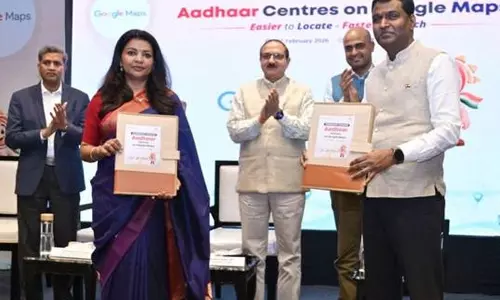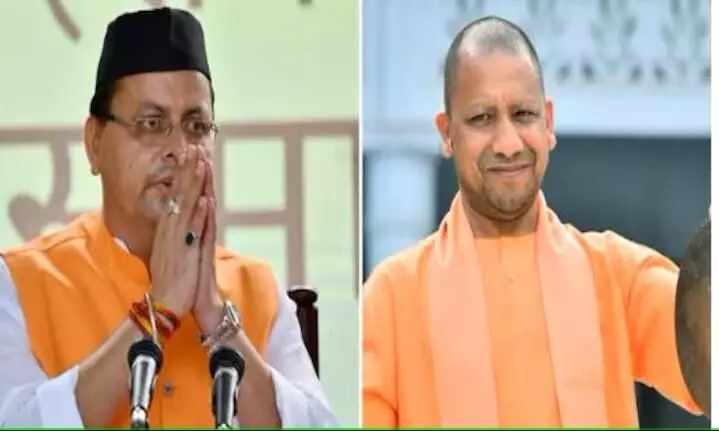
SC to hear constitutional validity of UP, Uttarakhand Govts' directive on nameplates
text_fieldsDelhi University professor Apoorvanand and human rights activist Aakar Patel have approached the Supreme Court, challenging directives issued by the Uttar Pradesh and Uttarakhand governments, mandating shopkeepers display the names of owners and employees outside their establishments along the Kanwar Yatra route.
The petitioners argue that this move is unconstitutional and disproportionately affects the rights of certain groups, especially Muslims, under Articles 14, 15, 17, and 19(1)(g) of the Indian Constitution.
The petitioners argue that this move is unconstitutional and disproportionately affects the rights of certain groups, especially Muslims, under Articles 14, 15, 17, and 19(1)(g) of the Indian Constitution.
The petitions, filed on July 21, assert that the directives are an endorsement of the practice of ‘untouchability,’ which is explicitly prohibited under Article 17 of the Constitution. The petitioners highlight that Article 17 bars any form of disability arising from ‘untouchability,’ including practices that encourage discrimination based on caste or religion. Besides, the petitioners claim that several Muslim men have been terminated from their jobs following the issuance of these directives, further violating their right to employment under Article 19(1)(g).
Trinamool Congress MP Mahua Moitra has also filed a plea against the directives, echoing the arguments presented by Apoorvanand and Patel. Moitra’s plea emphasizes that the directives, purportedly aimed at respecting pilgrims’ dietary preferences and maintaining law and order, are arbitrary and lack a sound legal basis. She argues that the directives violate multiple constitutional rights and unfairly burden the most vulnerable and marginalized sections of society with the responsibility of maintaining law and order.
Another plea challenging the directives has been filed by the Association of Protection of Civil Rights (APCR) and is scheduled for a hearing in the Supreme Court on Monday, July 22. A bench comprising Justices Hrishikesh Roy and SVN Bhatti will preside over the case.
The Kanwar yatra, an annual pilgrimage undertaken by Hindu devotees, involves travelling by foot to Uttarakhand to collect water from the Ganga river, which is then offered in Shiva temples. This year’s yatra is set to commence on July 22. In preparation, district authorities in Muzaffarnagar, followed by Saharanpur and Shamli, ordered shopkeepers along the yatra route to display the names of the shop owners and employees to avoid confusion among the pilgrims.
Following widespread criticism, the Uttar Pradesh government extended this directive statewide on July 19. Similarly, Haridwar district authorities in Uttarakhand have issued comparable orders.
The directives have faced significant backlash from various political quarters. Senior BJP leader and former Union minister Mukhtar Abbas Naqvi, as well as BJP allies Janata Dal (United) and Rashtriya Lok Dal, have expressed their opposition. The Congress party has labelled the move as an assault on India’s shared cultural heritage, with party leader Priyanka Gandhi terming it a “crime against the Constitution.”






















